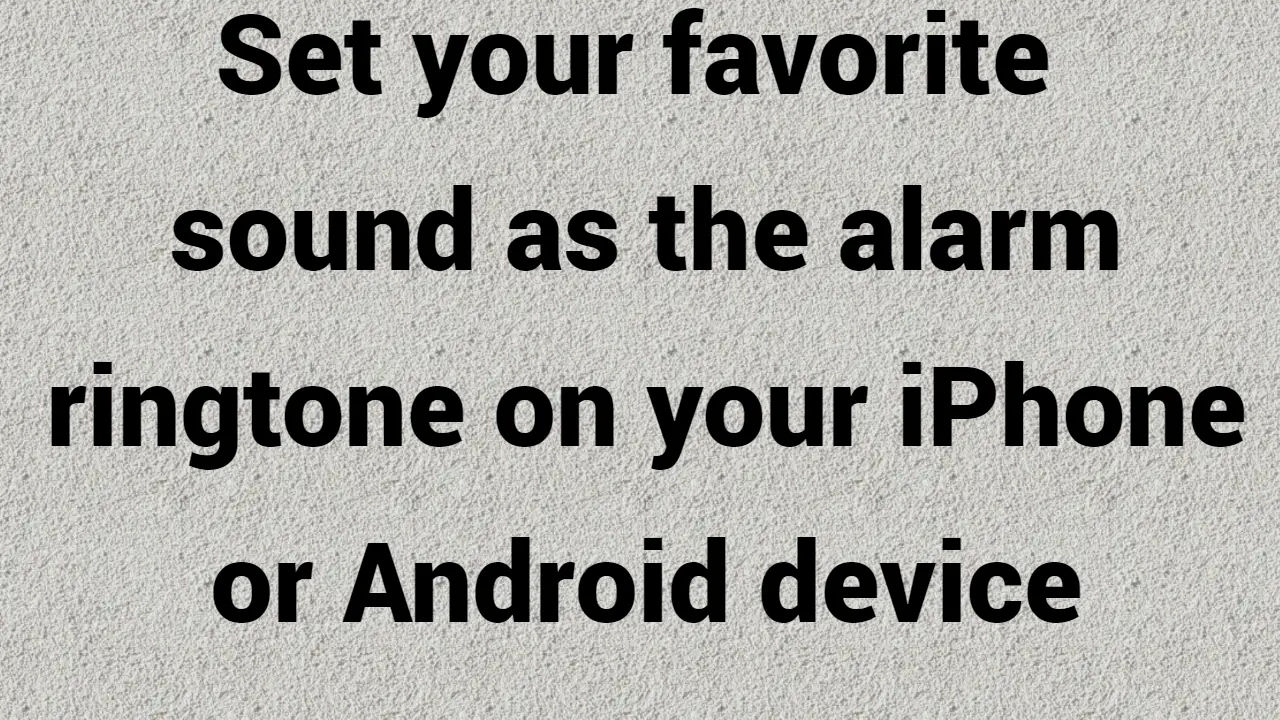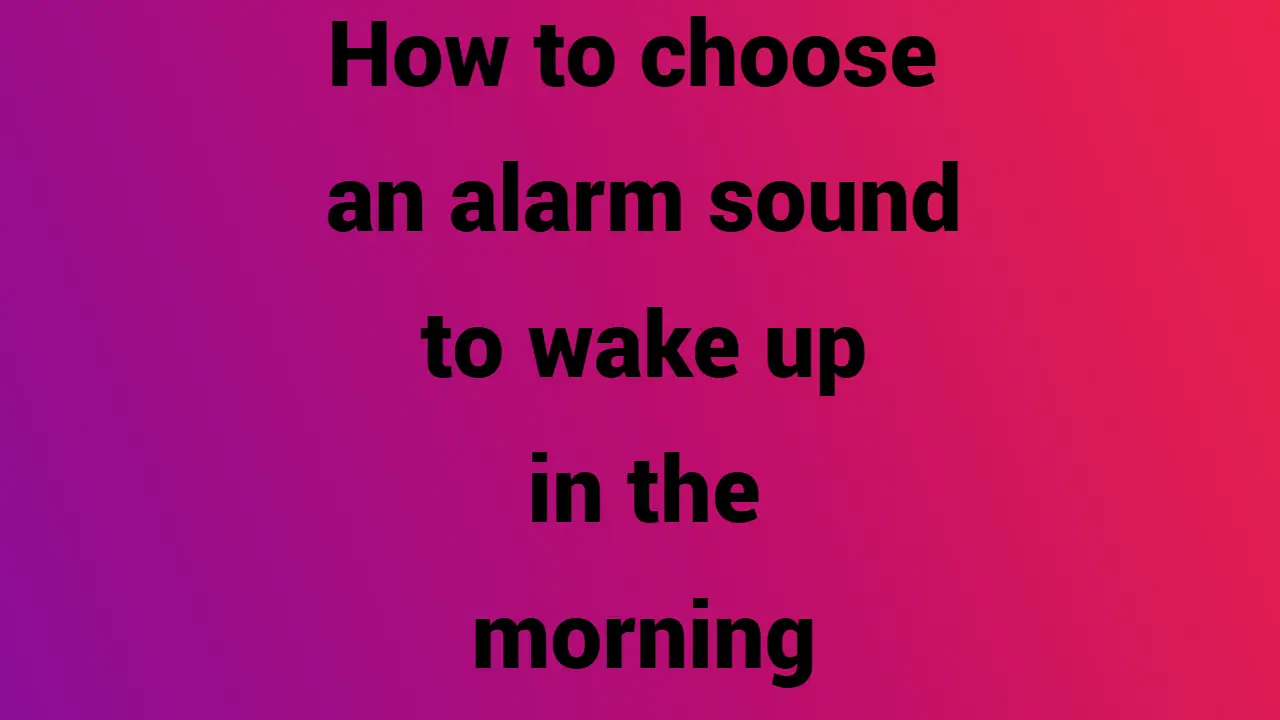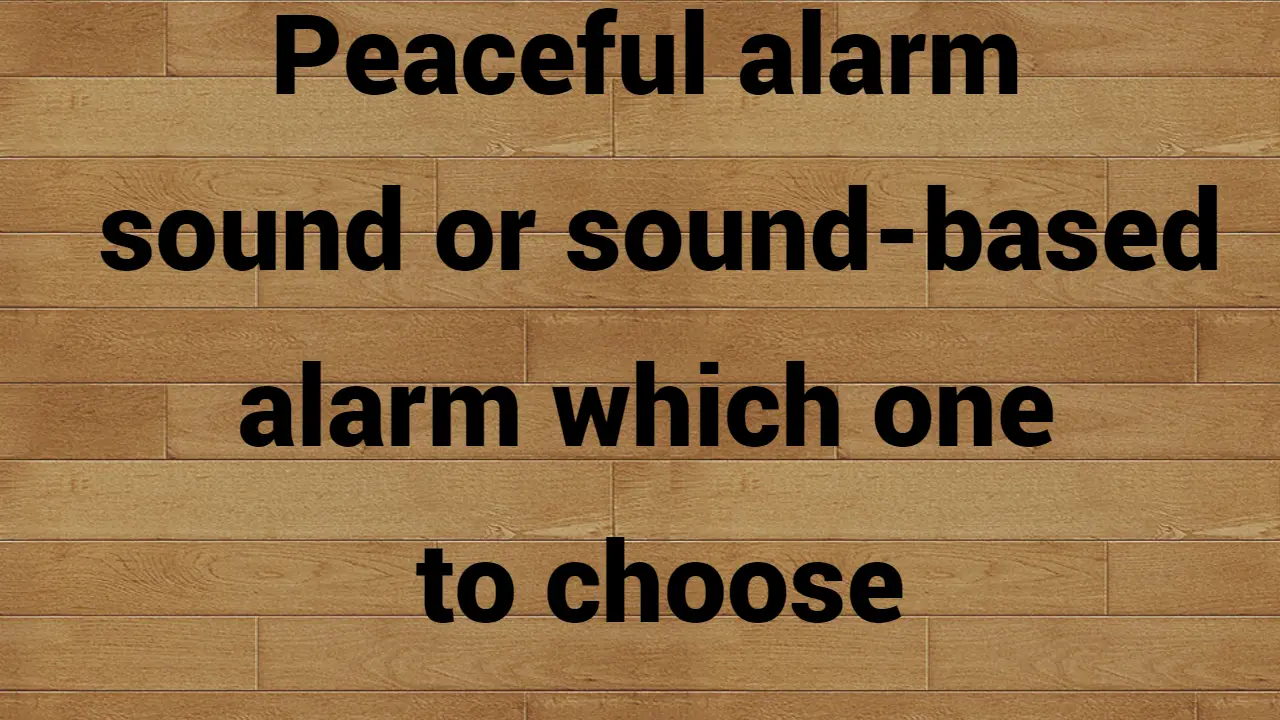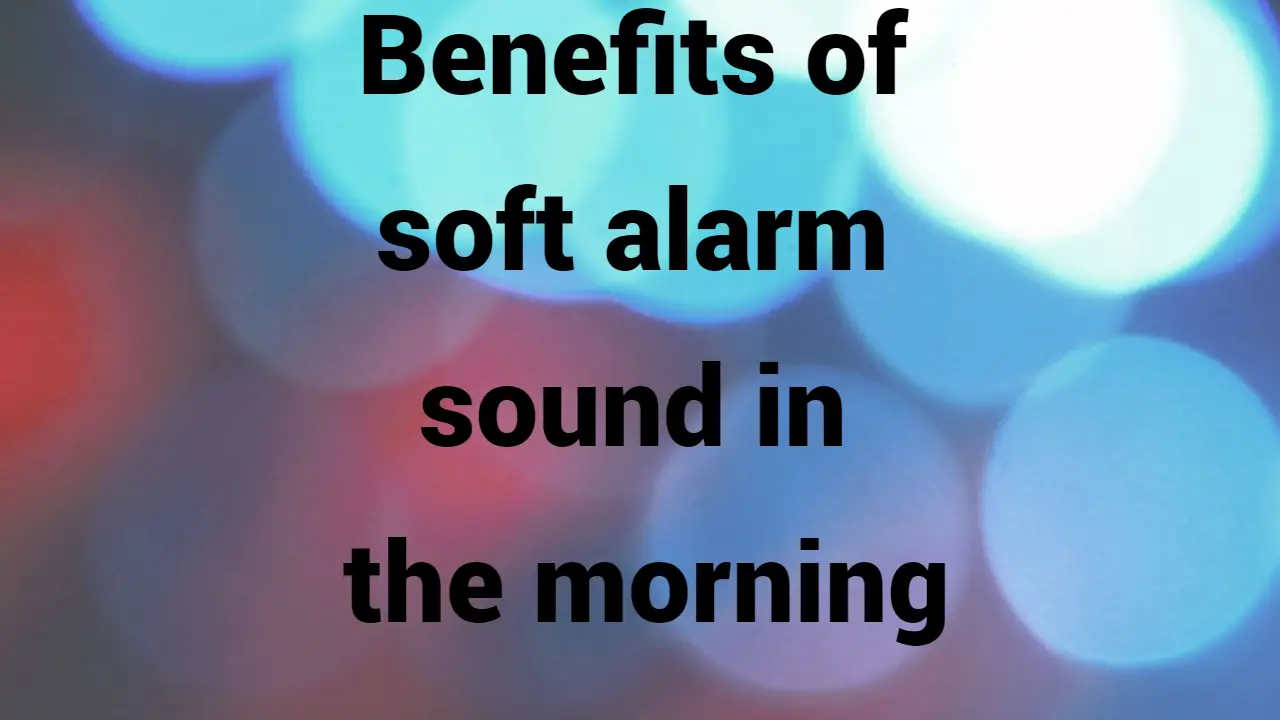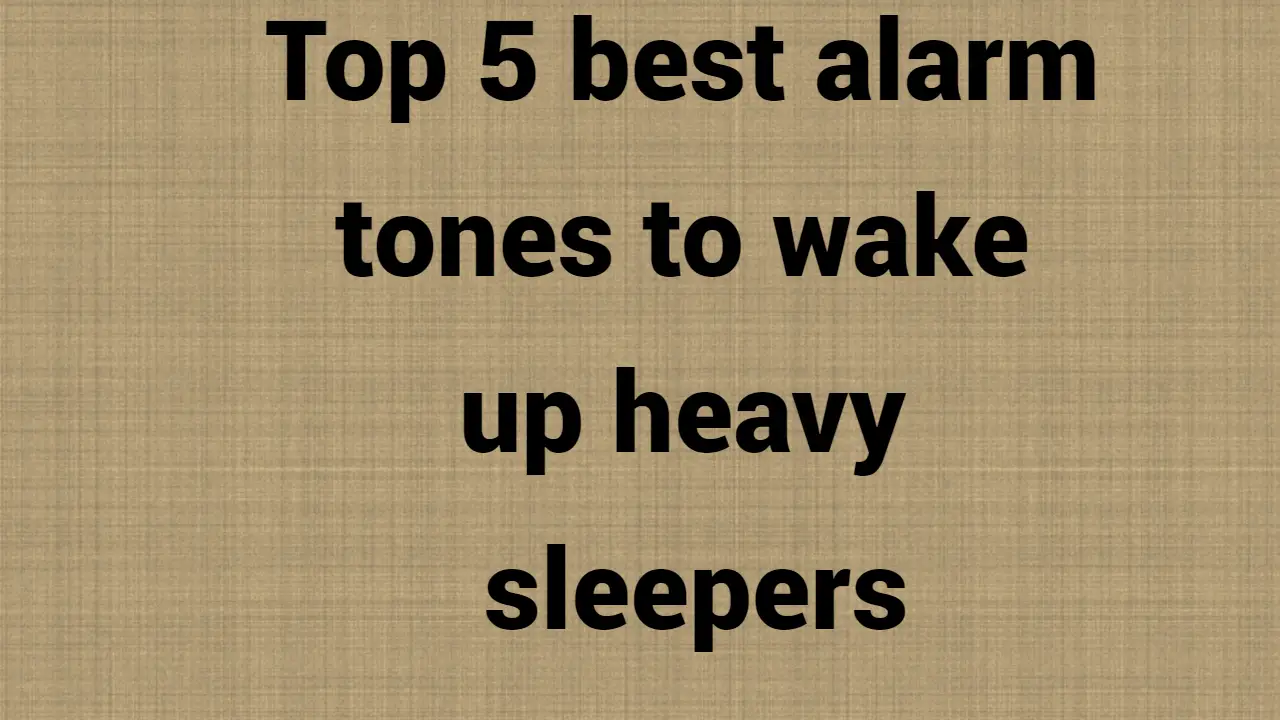Around 500 BCE, Pythagoras posed a similar query. He thought that certain songs, with their energetic melodies, could counteract the drowsiness that waking might bring. And it seems like he had a point. Recent studies have revealed that some alarm sounds can actually increase our alertness when we wake up. Alarms with “tunefulness” in particular, such as ABC by The Jackson 5, have melodies that energize the listener and are excellent for effective waking.
But in order to comprehend why this is the case, we must first comprehend how our brains react to challenging stimuli when awakening from sleep.
Need to wake up on time.
Nothing feels wrong when you awake lightly. Our cognition and mental performance can be impacted by how we wake up in addition to our mood and outlook for the day.
In some situations, feeling groggy after waking up has the potential to be dangerous several hours later by impairing our ability to make important decisions (like in a hospital setting, during an emergency, in a public place, or while driving, for example). Sleep inertia is the term used to describe this cognitive state of decreased alertness. As it can have serious consequences while performing high-risk tasks like driving, it is a growing source of worry.
Scientists reveal the BEST alarm clock sound to use in the morning to quickly banish sleepiness.
- RMIT scientists recommended waking up to music rather than a beeping sound.
- You can increase your level of alertness by waking up to music.
- People listed their favorite songs to wake up to, with Bohemian Rhapsody among them.
- Olivia Arezzolo, a sleep expert, advised getting up as soon as your alarm goes off.
- Beach Boys or beep beep beep? According to recent research, the sounds you wake up to may have an impact on how sleepy and unsteady you are in the morning. According to an RMIT University study, melodic alarms may increase alertness, while harsh alarm tones have been linked to higher levels of morning grogginess.
- The unexpected finding, which was reported in PLoS One, may have significant ramifications for shift workers, emergency first responders, or anyone else who needs to perform at their best shortly after waking up. A major issue in our always-on society, according to the lead author and doctoral researcher at RMIT, Stuart McFarlane, morning grogginess, also known as sleep inertia, is a major issue in our always-on society.
- According to McFarlane, if you don’t wake up properly, your work performance can suffer for up to four hours, which has been linked to serious accidents. While it might be expected that a startling “beep beep beep” alarm would increase alertness, our data showed that melodic alarms may actually be the key.
- Since most people use alarms to wake up, the sound you choose could have significant effects, even though more research is needed to determine the precise melody and rhythm combination that might work best. “This is especially important for people who might work in hazardous situations shortly after waking up, like firefighters or pilots, but it’s also important for anyone who needs to be alert quickly, like someone who is driving to the hospital in an emergency.”
- A specially created online survey was used for the study, which had 50 participants who could participate remotely from the comfort of their homes. Then, using standardized sleep inertia criteria, each person rated their level of grogginess and alertness. Each person also recorded the type of sound that woke them up.
- The research, according to co-author Associate Professor Adrian Dyer of RMIT’s School of Media and Communication and Digital Ethnography Research Centre, may help in the development of more effective interventions that people can use on their own devices to wake up properly.
- Even NASA astronauts claim that sleep inertia impairs their performance on the International Space Station, according to Dyer. Therefore, this study is crucial. “We believe that a sharp “beep beep beep” may work to confuse or disrupt our brain activity as we awaken, whereas a more melodic sound, such as the Beach Boys’ “Good Vibrations” or The Cure’s “Close to Me,” may help us transition to a waking state more successfully.
- With recent developments in artificial intelligence and sleep technology, the authors of the study write that there may be applications in many fields if we can continue to understand the connection between sounds and waking states.
What causes the brain to awaken?
Brain imaging techniques have shown that the transition from sleep to alertness does not rely on an on/off switch-like system. The biological processes involved in waking up are intricate and include increased blood flow to the brain. According to studies, the prefrontal cortical regions of the brain, which are crucial for alert performance, take longer to “start up” than other regions of the brain, like the basal ganglia, which are crucial for arousal. So even though you may be awake, you might not be fully present.
According to research, waking up causes the brain’s blood flow activity to decline from its pre-sleep level. As a result, mechanisms that promote a redistribution of blood flow to the brain—which certain types of sound and music can do—might be necessary for mechanisms that promote alert wakefulness.
The degree of sleep being experienced at the time also affects alertness when waking. As opposed to waking up from a deeper slow-wave or REM sleep, light sleep is less likely to leave you feeling groggy. Theta wave frequencies, as determined by the electrical activity of the brain, indicate a stage of light sleep, which is sometimes accompanied by drowsiness. Awakening from this stage of sleep can occur very quickly in response to outside stimuli like an alarm clock.
In contrast, delta wave frequencies, which are connected to unconsciousness, are present during deep sleep or slow-wave sleep. The hardest sleep stage to fully awaken from is this one.
Age affects how well alarms work. Preteens need an even higher threshold than young adults, who need louder alarms than young adults between the ages of 18 and 25. At 18 compared to 80, you might need an alarm that is up to 20 decibels louder.
How significant are sound frequency and tune?
However, what exactly is the best option when selecting an alarm? Different alarm sounds may have a positive impact on how well people perform after waking up, according to a growing body of research. 2020 saw the publication of our systematic review, which found that temporal frequencies (the pitch of the sound as measured in Hertz) around 500 Hz are more potent at rousing young children than varieties at 2000+ Hz.
The same alarm types are thought to be advantageous for adults, though there isn’t enough research to say whether this holds true for them as well.
Higher frequencies are less effective than voice notifications, like someone shouting “wake up!” They are not as effective as 500 Hz tonal beeping alarms, which come pre-installed in the majority of mobile phones, though.
Additionally, our study investigates the functions of musical elements, particularly melody, in promoting alert wakefulness. We discovered that how people perceive the “tunefulness” of their alarms also indicates how sleepy they are when they first wake up.
In this situation, people will feel less groggy if they use alarm clocks with music they can easily hum along to than if they use a standard “beeping” alarm.
In order to address this, we created a unique rhythmic melody that, when compared to conventional beeping alarms, significantly improved performance both during and after waking.
Our goal in creating this test alarm tone was to improve alertness and lessen morning drowsiness. In accordance with other studies, listening to melodic popular music after a brief nap is beneficial for preventing sleep inertia, and this benefit increases if the music is something the listener personally likes.
How can my wake-up alarm be improved?
How does this affect our daily lives? In light of everything said above, we think the ideal alarm should sound like this:
- You can hum or sing along to the melody quite easily.
- It is primarily in the key of C5, or at a frequency of about 500 Hz.
- 100 to 120 beats per minute is the ideal range; it is neither too fast nor too slow.
Keep in mind that younger people or people who tend to sleep deeply should be woken up by a louder alarm.
We need to do a lot more research in this area, especially given how commonplace default alarms are on our devices and how recent this field of study is. So, we predict that the number of custom alarm downloads will rise over time.
The majority of built-in alarms will wake you up when they are set to the right volume, but some designs (like the one above) have been created based on the most recent research to increase alertness while also encouraging arousal.

